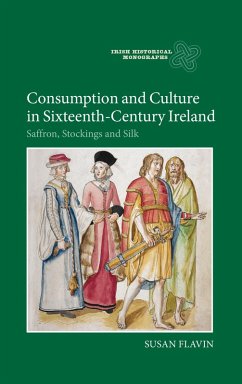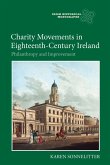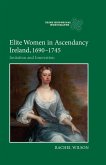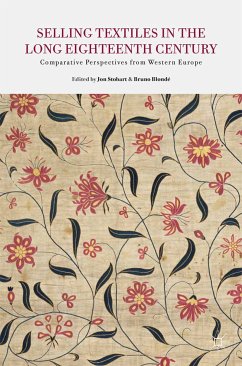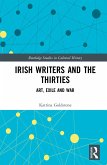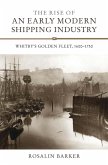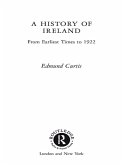A detailed study of changing patterns of consumption, showing how these related to wider political, social and economic developments.
This book, based on extensive original research, argues that everyday Irish consumption underwent major changes in the 16th century. The book considers the changing nature of imported goods in relation especially to two major activities of daily living: dress and diet. It integrates quantitative data on imports with qualitative sources, including wills, archaeological and pictorial evidence, and contemporary literature and legislation. It shows that changes in Irish consumption mirrored changes occurring in England and across Europe and that they were a function of broader developments in the Irish economy, including the increasing participation of Irish merchants in European markets. The book also discusses how consumption was related to wider political, economic and cultural developments in Ireland, showing how the acquisition and interpretation of material goods were key factors in the mediation of political and social boundaries in a semi-colonised and contested society.
Susan Flavin completed her doctorate in early modern history at the University of Bristol.
This book, based on extensive original research, argues that everyday Irish consumption underwent major changes in the 16th century. The book considers the changing nature of imported goods in relation especially to two major activities of daily living: dress and diet. It integrates quantitative data on imports with qualitative sources, including wills, archaeological and pictorial evidence, and contemporary literature and legislation. It shows that changes in Irish consumption mirrored changes occurring in England and across Europe and that they were a function of broader developments in the Irish economy, including the increasing participation of Irish merchants in European markets. The book also discusses how consumption was related to wider political, economic and cultural developments in Ireland, showing how the acquisition and interpretation of material goods were key factors in the mediation of political and social boundaries in a semi-colonised and contested society.
Susan Flavin completed her doctorate in early modern history at the University of Bristol.
Dieser Download kann aus rechtlichen Gründen nur mit Rechnungsadresse in A, D ausgeliefert werden.

